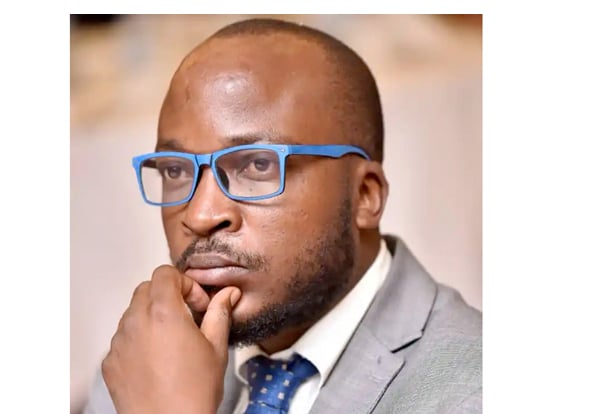Why trust in science, systems is fading fast

Emilly Comfort Maractho
What you need to know:
- “In short, without trust, we would never drive a car, cross a bridge or road, and do the many things we do"
Every time I am asked to comment on the continued closure of schools, I do not know which part of me should respond. There is the parental part of me that has watched the kids grow beyond their years, almost forgetting what it is like to go to school.
The part that feels for parents of the thousands in statistics, of underage girls who have given birth in the last year, probably never to return to school and wedded to poverty. That part is emotional and cannot give an objective response.
Then there is the academic part of me that knows we will not easily recover from the continued closure, because the spiral effect of it will translate to many things. That part of me is sober and sometimes sombre.
But there is the individual rational part of me that wants to believe I need to be safe from Covid-19 and survive a few more years in order to chase some other pending goals. That part of me chooses to stand, trusting that God is in control.
These different parts of me begin to argue with no conclusion sometimes. The problem is that the trusting part of most people is fading, to say it mildly. Talking of trust, can we trust that those in-charge of the decisions on going to school, based on Kenneth Newton’s working definition of trust, believe that ‘others will not deliberately or knowingly do us harm, if they can avoid it, and will look after our interests, if this is possible’. Or have we reached a place where looking after our interest is not possible?
In public policy, there is what we call being rational, and sometimes the decision to trust itself is a rational choice. For generations, we have placed trust in systems, as Newton notes, ‘systems that trains people for their jobs, monitors their performance and health, regulates their working hours, checks the safety of brakes, engines, machinery, the public health provisions of public places, and the brick and metalwork of buildings, bridges and railways’.
In short, without trust, we would never drive a car, cross a bridge or road, and do the many things we do. Even after our simple faith in people and systems is broken by promises not kept, or sheer dishonesty and betrayal, we find fresh reasons or hope, to trust again.
Yet, it is beginning to feel like much of the basis for closing schools defies logic, even with the pandemic remaining an imminent threat to life. And it is breaking the social contract built on trust by the people with their leaders. The growing sense that decisions are made that do not affect policy actors but the majority who cannot push back is worrying.
Over the years, the loss of public trust has grown, not just in one system. In our field of journalism, there has been growing loss of trust in news and media organisations. Journalists are among those the public has little confidence in.
A recent study of media viability in Uganda done by the Aga Khan University established that ‘the phenomena of misinformation and disinformation have contributed to the loss of trust and credibility of media houses in Uganda. Some media outlets in Uganda have had their credibility questioned following publication of certain stories.’ But there is also the whole sense of trust that many journalists have lost, as a result of social media and people not being able to distinguish between journalistic content and other material generated by communication enthusiasts.
Since the first lock down in 2020, there was a near blind trust in science and systems to protect the population. People have taken every bitter pill from those decisions, hopefully made in good faith. But they are beginning run low on faith and trust is further fading.
Covid-19 saw a growing frustration with our medical profession, with people accusing medics of all kinds of wrong doing including extortion and profiteering from misery. Our very precious scientists and those who fund science are accused of things that make only the strong hearted take the Covid-19 vaccine. From parliament to judiciary, the stories are not different, about the public placement of confidence in systems they should fall back on in times of need.
The loss of public confidence is not something new, but its deepening. We must recognize that something is giving way in our socio-legal systems - that many of the foundations of trust are fading, even in everyday issues. The loss of trust in science and systems is not something we should take for granted as it complicates governance. The continued closure of schools is worth treating with urgency. We may spend years dealing with its impact and wonder if it was not better to take risks with Covid-19 instead.
Ms Maractho (PhD) is the Director Africa Policy Centre and Senior Lecturer at Uganda Christian University. [email protected]




